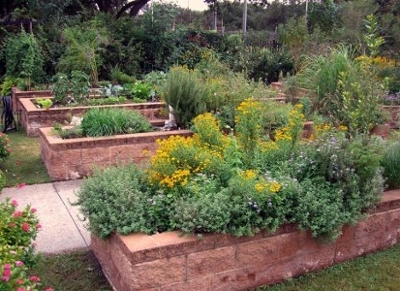 Though we haven't packed away cool-weather clothes completely (and we shouldn't if we are to trust the Farmer's Almanac), mild temperatures at the end of January had many in summer attire. The first sign of spring-like weather usually has gardeners darting to local nurseries for the growing season's first purchase.
Though we haven't packed away cool-weather clothes completely (and we shouldn't if we are to trust the Farmer's Almanac), mild temperatures at the end of January had many in summer attire. The first sign of spring-like weather usually has gardeners darting to local nurseries for the growing season's first purchase.
Impulse buys at the garden center may be rewarding to gardeners anxious to get their hands dirty, but they are seldom successful at summer's end. To ensure success, start your garden on solid ground, or more specifically, well-prepared soil.
A healthy garden can come from only healthy soil. Poor drainage, nutritional difficulties, insects and diseases can be a result of imbalances or deficiencies in the soil, creating most of the problems plants encounter. Organic remedies, in my opinion, are the only solution to poor soils.
Organic fertilizers are derived from plant or animal by-products and contain trace elements that most synthetic fertilizers do not. The traditional synthetic fertilizers usually contain only nitrogen, phosphorus and potassium, and by themselves are not enough to promote healthy, vigorous plant growth.
In addition, organic fertilizers release nutrients slower than synthetic fertilizers, and plants are able to make better use of them. Many synthetic fertilizers provide more nutrients than can be taken up by plants and are wasted as they run off into the storm sewers and ultimately into waterways where they are the biggest non-source point pollution offender. Strong synthetic fertilizers can harm the beneficial microorganisms in the soil.
If you feed the soil, the soil will feed the plants. Plants receive more nutrients from an organically rich soil than a synthetic fertilizer. In the long run organic methods can lower costs, reduce synthetic chemical usage, provide a safe place for pets and children to play, and encourage birds, butterflies, and other wildlife to make your garden their home. The correct preparation of your planting beds is crucial.
To know your soil's deficiencies, begin by having it tested. The Texas A&M AgriLife Extension Service can test your soil and has detailed instructions about how to take a soil sample Texas A&M Extension Soil Testing. Also an Internet search will find a number of soil testing laboratories. Once you have your soil tested at a lab, use the same lab for subsequent tests. Each lab may have different methods of testing for certain properties. Changing labs will make it difficult to monitor your results over time. The lab usually makes recommendations on what amendments your soil needs as indicated by the test.
Most soils in our area lack sufficient organic material. Incorporating a 4- to 5-inch layer of organic matter (compost or finely shredded native hardwood mulch — (beware of mulch at box stores: there are no laws in labeling native mulch, so be careful as it could be shredded up fence boards or pallets and do not buy colored mulch) when preparing new planting beds will improve drainage, increase mineral and nutrient retention, and foster microorganism growth and activity. Microorganisms, and there are millions in each handful of soil, perform key functions. They process unusable materials in the soil into beneficial substances, fight off destructive diseases, build vigorous roots, and change the soil texture to allow for better air and moisture movement.
Humate is a natural by-product of composting. For quicker results, or where it is not possible to incorporate compost (such as established plantings), adding Humate will help. Humate increases the amount of available carbon (a necessary building block of all life), helps balance pH, makes existing minerals more available, and promotes strong root growth. Zeolite is another natural mineral deposit and helps improve drainage and increase beneficial fungi and microbes.
In addition to incorporating organic matter into the soil, topdressing your planting beds with an organic mulch is another means to encourage healthy plantings. Nutrients are added to the soil as the mulch decays, weeds are discouraged from sprouting, erosion is checked, moisture is conserved and the mulch's insulating properties regulate soil temperature.
By faithfully tending to the needs of your garden's soil you will keep the soil feeding your plants and promote a strong healthy garden that will reward you for many seasons to come.
This article is provided by Urban Harvest, Inc. To learn about gardening classes, farmers markets, school and community gardens and more go to www.urbanharvest.org or call 713-880-5540 for more information. The article was written by Suzy Fischer, who is a registered Landscape Architect and principal of Fischer Schalles, a landscape design/build firm.